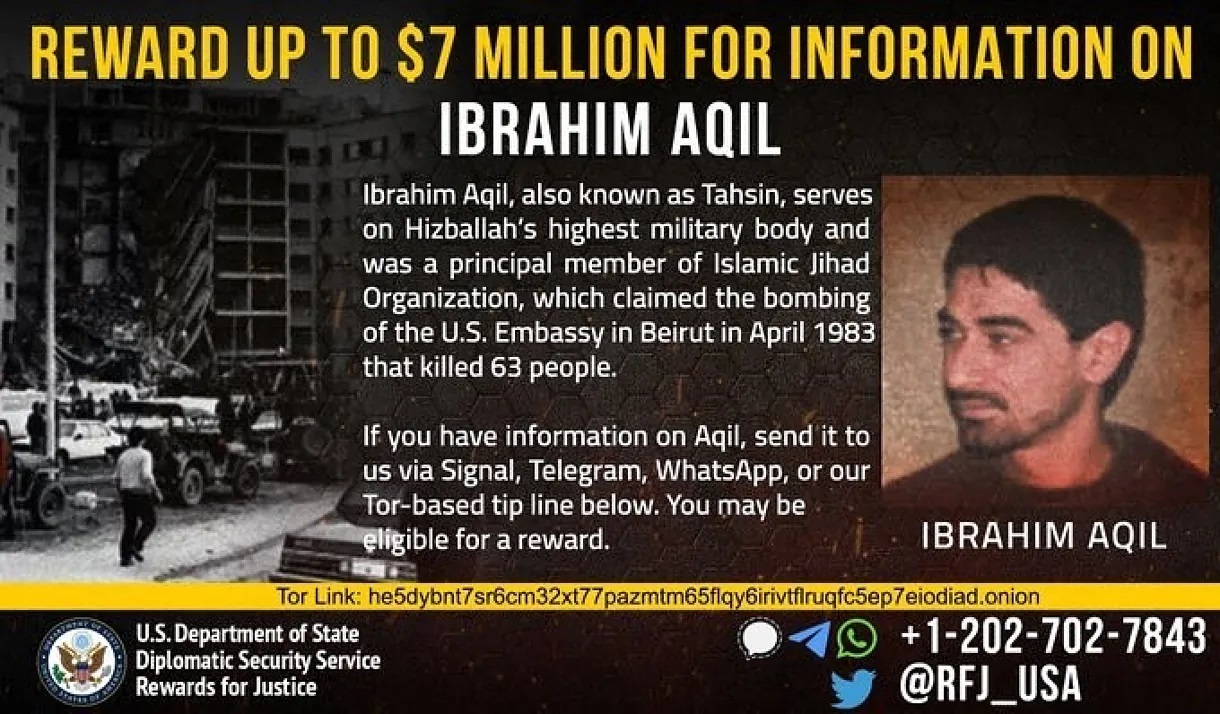Without waiting for the "harsh response" promised on Thursday by Hezbollah leader Hasan Nasrala, for the deadly explosions of communication devices, Israel targeted a senior Shiite militia commander this Friday. Ibrahim Aqil was killed in an Israeli attack on southern Beirut, where a total of 12 people have lost their lives and 66 have been injured. He was the main target. Israel has claimed to have also eliminated several of his commanders, all involved in the daily rocket and anti-tank missile launch operations against Israel.
Who was Aqil? He had just replaced Fuad Shukur, head of Hezbollah's strategic unit and right-hand man of Hasan Nasrala, killed in another targeted attack on July 31. Aqil was the head of the Al Radwan force, the elite unit of the pro-Iranian militia. Known as 'Tahsin', 'The Efficient', he was the operations chief and a member of the organization's top military structure, the Jihad Council.
He was probably born in 1962 in Bekaa, northwest Lebanon, one of Hezbollah's historical strongholds. He had been associated with this organization since its founding in 1982, in a Lebanon in turmoil and ravaged by the civil war that broke out in 1975 and in which Israel intervened that year, invading Beirut from the south.
The United States had a seven million dollar bounty on his head, attributing to him being one of the masterminds of the terrorist cell Islamic Jihad Organization, believed to have operated within Hezbollah and claimed responsibility for the attacks on the US embassy in Beirut in April 1983, with 63 dead, and the US Marines base in the same city in October of the same year, with 241 American soldiers and 58 French paratroopers dead (in addition to six civilians and the two suicide bombers). The attacks occurred during one of the most turbulent stages of the Lebanese civil war, when car bombs were a daily occurrence.
The magnitude of these attacks led to the subsequent withdrawal of Western forces stationed in Lebanon as part of an international peace operation. Recalling those difficult times, the United States has called on its citizens to leave Lebanon this Friday, in anticipation of a further escalation of the conflict between Hezbollah and Israel.
According to the United States, in the 80s, Aqil led the operations of kidnapping American and German hostages that marked and terrorized civilians during those years.
Aqil was also linked to leading Hezbollah's operations in the Syrian war.
This is the third attack in which Israel has targeted the southern suburbs of Beirut, Dahiyah, after killing Shukur and Saleh al Aruri, the 'number two' of Hamas, in January. This predominantly Shiite neighborhood, which in Arabic simply means "the suburbs," is Hezbollah's stronghold, where its main institutions are located and where allied armed groups - from Hamas to Yemeni Houthis - have their 'embassies'.
This new blow to Hezbollah's structure reveals the extent to which the security of its leadership is compromised. Following the explosions of 'person-finders' and 'walkie-talkie' devices in the hands of Hezbollah militants on Tuesday and Wednesday, at least 35 people were killed and thousands seriously injured, many with amputations. It remains to be seen to what extent the communication chain of the armed organization has been affected.
